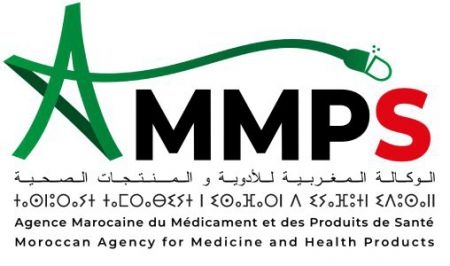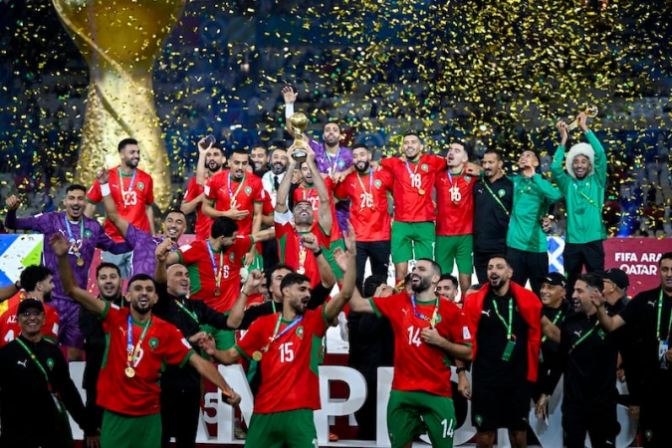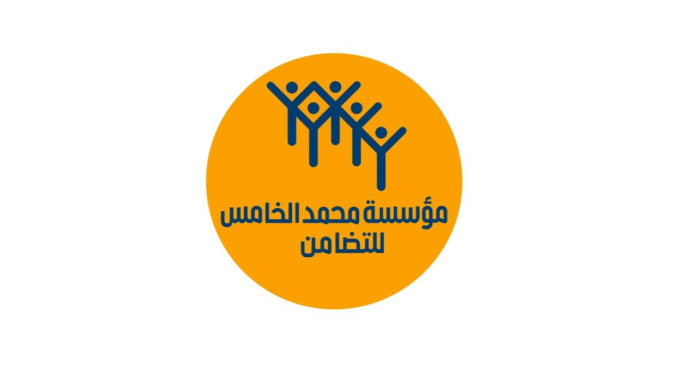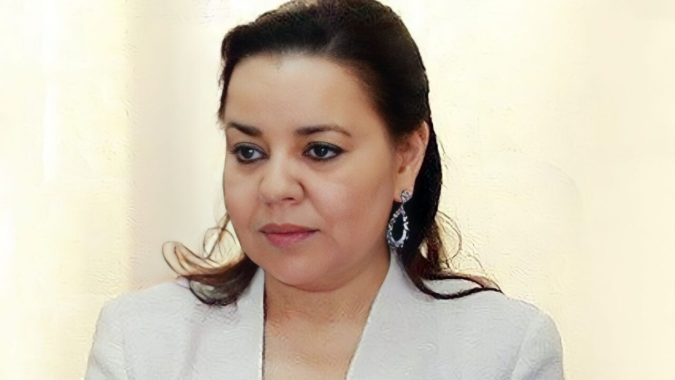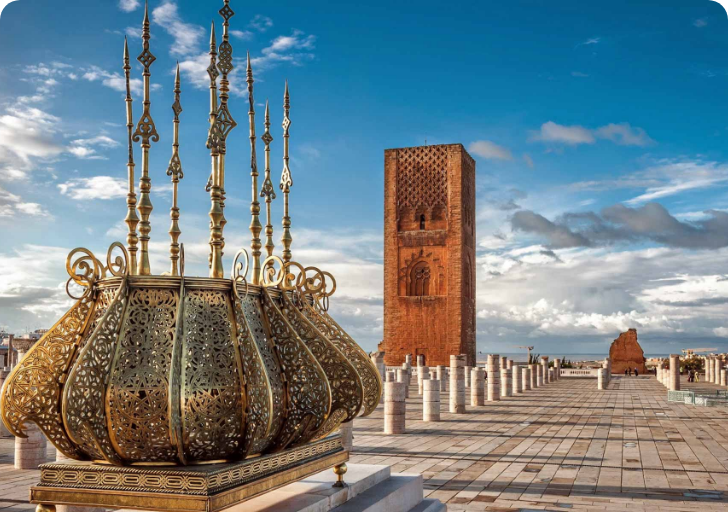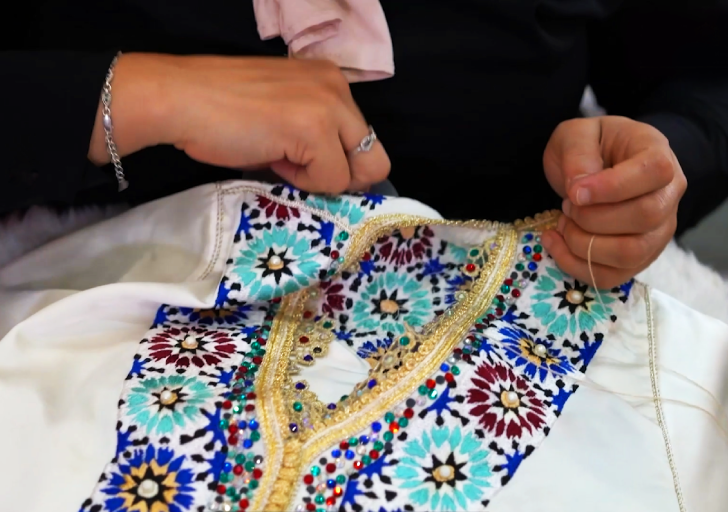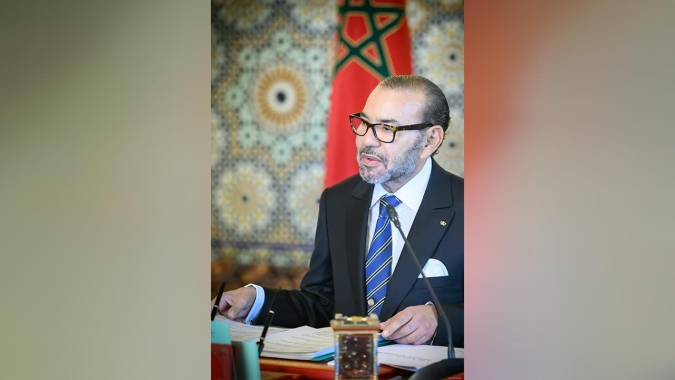
His Majesty King Mohammed VI, may God assist Him, chaired a Council of Ministers on Sunday at the Royal Palace in Rabat, according to a statement from the Royal Office.
Here follows the translation:
“His Majesty King Mohammed VI, may God assist Him, chaired, on Sunday, October 19, 2025, corresponding to 26 Rabii II 1447 AH, a Council of ministers at the Royal Palace in Rabat, devoted to the examination of the general guidelines of the 2026 Finance Bill, the approval of organic bills, two draft decrees relating to the military field, as well as a set of international agreements and appointments to senior positions.
In accordance with the provisions of Article 49 of the Constitution, the Minister of Economy and Finance presented before His Majesty the King the main outlines of the 2026 Finance Bill.
The minister stressed that the bill was drafted in light of the High Royal Guidelines and Instructions particularly laid out in the two latest Speeches delivered on the occasion of the Glorious Throne Day and the opening of the legislative year.
It comes in an international context marked by uncertainty altering global growth prospects.
At the national level, the national economy is poised to grow by 4.8% this year, driven by a recovery in domestic demand and the vitality of the productive fabric, given the dynamism of non-agricultural activities.
These encouraging economic performances have been supported by inflation control, standing at 1.1% at the end of August 2025, and a steady recovery of the budget deficit, set to stand at 3.5% of GDP.
The Finance Bill also aims to accelerate the implementation of the “Emerging Morocco” projects and to achieve national development combining social justice and integrated local development that benefits the entire population on equal footing.
To this end, the 2026 Finance Bill is based on four major priorities:
First: Consolidating economic achievements to foster our country's standing among emerging nations: by stimulating private investment, both domestic and foreign; accelerating the efficient implementation of the Investment Charter; enrolling the Green Hydrogen Moroccan Offer; continuously enhancing the attractiveness of the business climate; strengthening innovative public–private partnerships; and diversifying the economic financing sources.
Special attention will be given to very small, small, and medium-sized enterprises, which represent one of the main sources of employment within the national productive fabric, notably by establishing a new technical assistance mechanism and providing financial support to boost their investments to promote job creation and territorial equity.
In the same vein, efforts will be intensified to integrate the youth and women into the labor market and to mitigate the impact of drought on rural employment, in addition to continuing support programs for livestock breeders to rebuild the national herd.
Second: Launching next-generation integrated local development programs: by harnessing local specificities, strengthening advanced regionalization, and reinforcing solidarity between local entities. These programs will be designed through broad consultation with all relevant stakeholders at the local level, giving priority to job creation for youth, tangible promotion in education and healthcare sectors, and local upgrading.
Special attention will also be given, in this regard, to regions facing severe precarity, notably mountainous and oasis areas, to the sustainable development of the national coastline, and to the expansion of the National Program for the Development of Emerging Rural Centers.
Moreover, and in line with the High Royal Instructions, the focus in 2026 will be on strengthening the budgetary effort dedicated to the health and national education sectors, bringing their combined budget to MAD 140 billion, along with the creation of more than 27,000 positions for the two sectors.
As for the health sector, emphasis will be placed on improving healthcare infrastructure through the operationalization of the University Hospital Centers (CHUs) of Agadir and Laayoune, the completion of construction and equipment for CHU Ibn Sina in Rabat, and the continuation of construction work for the CHUs of Beni Mellal, Guelmim, and Errachidia, in addition to launching an upgrading and renovation operation for 90 hospitals.
The implementation of education system reform will also be accelerated, through the acceleration of the generalization of preschool education, the strengthening of educational support services, and the improvement of education quality.
Third: Continuing to consolidate the pillars of the social State: through the implementation of the Royal Project for the generalization of social protection and the operationalization of the social aid program benefiting 4 million households, while upgrading the monthly child support allowances to 50-100 dirhams per child for the first three children, along with the rollout of special aid for orphaned and abandoned children housed in social protection institutions.
This also concerns the operationalization of the project’s remaining areas, particularly expanding the enrollment in pension plans, generalizing severance pay, as well as continuing the direct assistance program for the purchase of primary residences.
Four: Pursuing major structural reforms and preserving public finances balance: mainly through the reform of the Organic Law on Finance Law, which reflects a profound change in the governance of public policy, with a greater focus on accountability, achieving results and enshrining cross-cutting and local approaches in the management of such policies.
The reform of public bodies and companies will also be accelerated, by pursuing the restructuring of the public portfolio, improving its output and bolstering the performance of its investments, for a balanced local distribution, other than pursuing the reform of the judicial system and its modernization, in order to bring justice closer to citizens and strengthen the attractiveness of the business climate.
Following the Council of Ministers' approval of the general guidelines for the 2026 Finance Bill, four draft organic laws were adopted:
These are two draft organic laws relating, respectively, to the House of Representatives and political parties:
The draft organic law relating to the House of Representatives aims to improve the moral standards of the next legislative elections and guarantee their integrity, so that they result in elites who enjoy legitimacy and trust, by prohibiting anyone who has been convicted of an offense resulting in loss of eligibility from entering the parliamentary institution and by taking the necessary firm action to remove anyone caught in the act of interfering with the electoral process, in addition to toughening the penalties for any attempt to undermine the integrity of the voting process at any stage.
In order to encourage the youth under the age of 35 to enter politics, this bill proposes to review and simplify the conditions for their candidacy, both within and outside the party framework, and to grant significant financial incentives to help them cover the costs of the election campaign, by offering them financial support covering 75% of their election campaign expenses.
The bill also proposes to reserve regional constituencies exclusively for women, in order to support their presence in parliament.
With regard to the draft organic law on political parties, its main aim is to modernize the legal framework governing them, establish rules to strengthen the participation of women and young people in the creation of parties, improve their governance, and regulate their financing and accounting, with a view to upgrading partisan action in our country so that it adapts to the profound changes in Moroccan society.
The two other draft organic laws respectively provide for the defining of the conditions and procedures for challenging the constitutionality of a law, and the amendment and supplementation of the organic law relating to the Constitutional Court.
The first of these two bills is part of the implementation of the provisions of Article 133 of the Constitution, which confers to the Constitutional Court the power to rule on a constitutional challenge raised by one of the parties to a dispute over the unconstitutionality of a law that infringes on the rights and freedoms guaranteed by the Constitution.
This draft takes into account the decision of the Constitutional Court relating to certain judgments considered to go against the Constitution.
The bill relating to the Constitutional Court aims to improve the efficiency of the Court, as well as its operating procedures, especially by limiting the right to introduce an appeal against the operation and results of the elections of the Constitutional Court members elected by the two Houses of Parliament.
It also involves exempting the Constitutional Court from notifying interested parties of its decisions on appeals relating to the election of members of both Houses of Parliament and assigning this power to the authority responsible for receiving nominations for these elections.
The bill also prohibits any member appointed or elected to replace a member whose term of office has ended prematurely, for any reason whatsoever, from being reappointed or re-elected if the replacement period exceeds three years.
Subsequently, the Council of Ministers approved two draft decrees concerning the military. The first, relating to the special status of civil servants in the General Directorate of Information Systems Security at the National Defense Administration, aims to establish a special status governing the management of this General Directorate’s resources and enabling it to attract the necessary skills through the adoption of flexible and efficient recruitment processes and the introduction of a comprehensive incentive allowance, in line with the technical nature and sensitivity of the missions entrusted to them.
The second draft decree amending and supplementing the provisions of the decree on the organization and management of the Royal School of Military Health Service aims to bring them into line with the legislative and organizational texts relating to the reform of the national health system and to enable candidates admitted to this school to benefit from the financial status granted to officer cadets at various military schools, in addition to the creation of a “Scientific Research Council” whose mission will be to set the priorities for scientific research and undertake related activities.
As part of the ongoing efforts to strengthen the partnership and cooperation relations between Morocco and several brotherly and friendly countries, and to consolidate its position at the continental and international levels, the Council of Ministers approved 14 international agreements, including ten bilateral and four multilateral agreements.
The bilateral agreements cover judicial and military cooperation, social security, air services, mutual recognition of driving licenses, and the elimination of double taxation.
The multilateral agreements concern headquarters agreements under which Morocco will host the headquarters of the African Organization of Supreme Audit Institutions, the Economic and Social Councils and similar institutions of Africa, as well as the London Protocol relating to the Carriage of Passengers and their Luggage by Sea and the Geneva Seafarers' Identity Documents Convention.
In accordance with article 49 of the Constitution and at the proposal of the Head of Government, and on the initiative of the minister of the Interior, HM the King, may God assist Him, has appointed several Walis and Governors to the Territorial Administration:
1- Khatib El Hebil, Wali of the Marrakech-Safi region, governor of the Marrakech prefecture.
2- Khalid Ait Taleb, Wali of the Fes-Meknes region, governor of the Fez prefecture.
3- Mhamed Atfaoui, Wali of the Oriental region, governor of the Oujda Angad prefecture.
4- Fouad Hajji, governor of the Al Hoceima province.
5- Hassan Zitouni, governor of the Azilal province.
6- Sidi Saleh Daha, governor of the El Jadida province.
7-Abdelkhalek Marzouki, governor of the Casablanca-Anfa districts prefecture.
8- Mohamed Alami Ouaddan, governor of the Zagora province.
9- Mustapha El Maaza, governor of the Al Haouz province.
10- Rachid Benchikhi, governor of the Taza province.
11- Mohamed Zhar, governor of the Inezgane-Aït Melloul prefecture.
12-Mohamed Khalfaoui, governor of the Fahs-Anjra province.
13-Zakaria Hachlaf, governor of the Chefchaouen province.
14-Abdelaziz Zerouali, governor of the Sidi Kacem province.
15-Abdelkrim Ghannami, governor of the Taounate province.
At the proposal of the Head of Government, and at the initiative of the minister of Economy and Finance, His Majesty the King has appointed Tarik Senhaji as President of the Moroccan Capital Market Authority."
MAP: 19 October 2025
